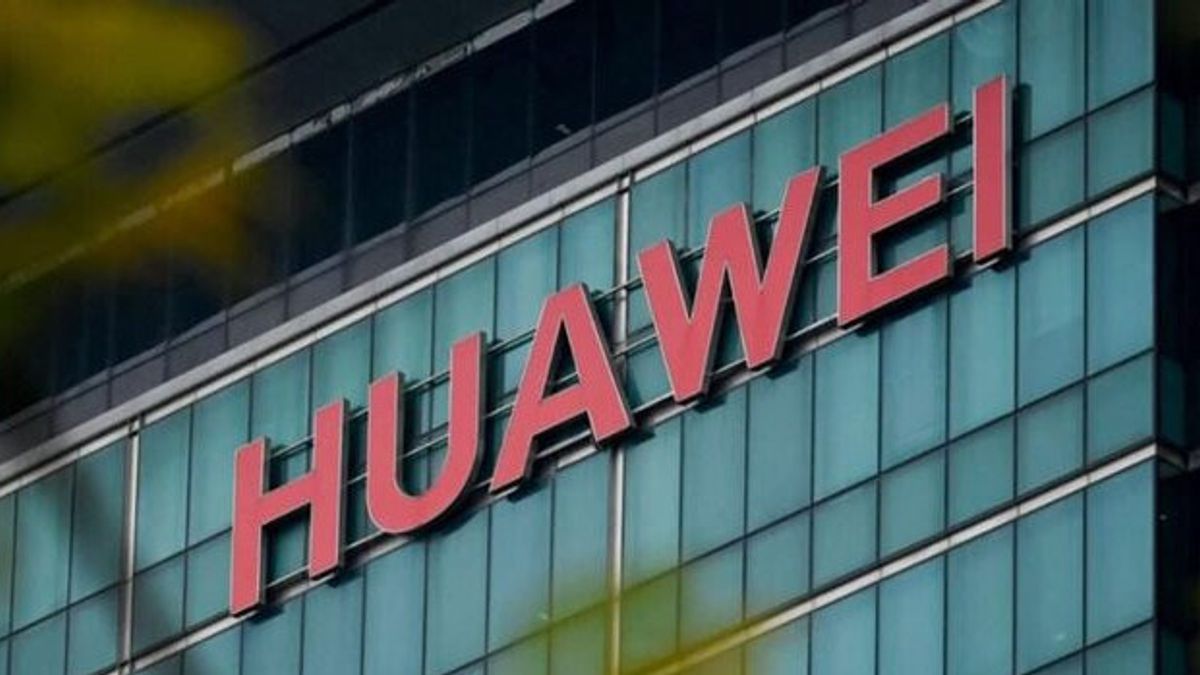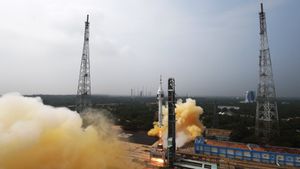JAKARTA - The United States' restrictions on exports of advanced artificial intelligence (AI) chips to China could create opportunities for Huawei Technologies to grow in its US$7 billion (IDR 111.1 trillion) home market. This is because these restrictions forced Nvidia to withdraw from the Chinese market.
While Nvidia has historically been the main provider of AI chips in China with a market share of more than 90%, Chinese companies including Huawei have developed their own versions of Nvidia's best-selling chips, including the A100 and H100 graphics processing units.
Huawei's Ascend chips are said to be on par with Nvidia in terms of raw computing power, analysts and some AI companies such as China's iFlyTek said, but they still lag behind in performance.
Jiang Yifan, principal market analyst at securities firm Guotai Junan, said another key limiting factor for Chinese companies is the reliance of most projects on Nvidia's chips and software ecosystem, but that could change with US restrictions.
"This US move, in my opinion, actually provides a big gift to Huawei's Ascend chips," Jiang said in a post on his Weibo social media account. This opportunity, however, comes with some challenges.
Many advanced AI projects are built on CUDA, a popular programming architecture created by Nvidia, which in turn has created a large global ecosystem capable of training highly advanced AI models such as OpenAI's GPT-4.
Huawei's version is called CANN, and analysts say that it is much more limited in terms of the AI models it is capable of training, meaning that Huawei's chips are far from a worthy replacement for Nvidia's.
Woz Ahmed, a former chip design executive turned consultant, said that for Huawei to win Chinese clients from Nvidia, it would have to duplicate the ecosystem Nvidia created. This includes supporting clients to move their data and models to Huawei's own platforms.
According to Ahmed, intellectual property rights are also an issue, as many US companies already hold key patents for GPUs. "To get something comparable, it will take 5 or 10 years," added Ahmed, quoted by Reuters.
Computing Power
If Huawei manages to capture Nvidia's market share, it could claim another victory against the United States, which has targeted companies with export controls since 2019.
Huawei launched its first Ascend GPU that year, one of a number of products - such as the Harmony operating system - that the company claimed were domestically made.
Over the past year, the telecom giant has shown signs that it is bucking US restrictions by launching advanced smartphone chips and claiming breakthroughs in chip design tools.
The company also wants to become a major provider of computing power for AI, with Chief Financial Officer Meng Wanzhou saying last month that Huawei wants to build a computing base for China and give the world a "second choice", in an implied reference to the dominant provider in the United States.
Huawei's partners in China so far include iFlyTek, a leading AI software company in China that uses the Ascend 910 to train their AI models. iFlyTek was also blacklisted by the United States in 2019.
SEE ALSO:
On Thursday, October 19, during iFlyTek's earnings call, Senior Vice President Jiang Tao said the Ascend 910B's capabilities were "on par with Nvidia's A100" and announced that it was developing general AI infrastructure in China together with Huawei.
"Our partnership now aims to enable domestically developed LLMs to be built with homegrown hardware and software," Jiang said.
Other partners include state-owned software company Tsinghua Tongfang and Digital China. At a conference in July, Huawei said its AI chips now help power more than 30 large language models in China, which is experiencing a generative AI craze and currently has more than 130 large language models.
Charlie Chai, an analyst with 86Research, said Nvidia's ecosystem dominance is not "an insurmountable obstacle if domestic players are given enough time and a large share of the customer market".
China's drive for self-reliance, which has been supported by Chinese President Xi Jinping, is likely to help this. "In short, a small disruption to short-term supply, but a big boost to the long-term self-reliance agenda," Chai added.
The English, Chinese, Japanese, Arabic, and French versions are automatically generated by the AI. So there may still be inaccuracies in translating, please always see Indonesian as our main language. (system supported by DigitalSiber.id)


















